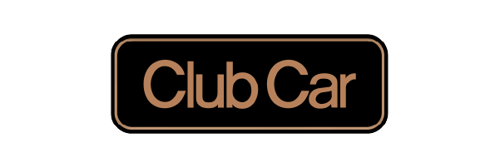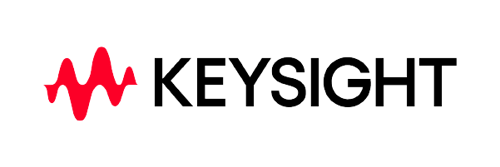Simple to Manage, Easy to Use Product Configuration Software from Logik.io
Logik.io’s advanced product configurator, or as we call it, our Commerce Logic Engine, takes even the most sophisticated products, and makes selling them simple, so every customer gets exactly what they need. By providing an easy-to-manage, flexible, centralized solution for managing how products can and should be sold, businesses can accelerate their GTM agility, reduce system administration costs, and increase selling effectiveness across channels.




Sell All Your Configurable Products Online.
Built with the flexibility, guided selling capabilities, and performance to support any experience.
Built headless to plug into any front-end you choose
API-first composable architecture so you can build out the configuration experience in Logik.io to power any front-end you create.
Dynamic messaging, field visibility, alerts and recommendations
Create guided paths for buyers to buy exactly what they need, faster than they could anywhere else.
Deliver the speed your buyers expect from e-commerce
"Good enough" speed isn't good enough anymore. Buyers demand the same experience they get with B2C. Logik.io delivers.
Table of Contents
Section 1 Mastering Complex Product Configuration Software with Logik.io
Offering personalized and customizable products is a necessity. Companies across industries face the challenge of delivering complex products that meet specific customer needs while ensuring efficiency and accuracy in the sales process. This is where product configuration software becomes indispensable. By leveraging advanced rules engines and seamless integration with CPQ (Configure, Price, Quote) systems, businesses can streamline their product configuration processes and deliver tailored solutions to their customers.
Section 2 What is Product Configuration Software?
Product configuration software is an essential tool for modern businesses, enabling them to offer customizable products by guiding customers or sales teams through the selection of various features, components, or options. The software uses predefined rules to ensure that only feasible product combinations are allowed, automatically generating accurate configurations that meet customer requirements. This software plays a crucial role in enhancing the customer experience by simplifying the customization process, reducing errors, and ensuring that the final product aligns with the customer's expectations.
In addition, product configuration software supports businesses in offering a broader range of options without complicating the sales process. By automating the configuration process, companies can focus on innovation and customer service, rather than getting bogged down in manual configuration tasks. This capability is particularly important in industries where product complexity is high, such as manufacturing, technology, and healthcare.
Section 3 The Need for Complex Product Configuration
Handling Sophisticated Products
In industries like manufacturing, technology, and healthcare, products often have multiple variables, options, and dependencies. Configuring these products manually is time-consuming and prone to errors. Complex product configuration software simplifies this process by allowing users to configure products with multiple variables while ensuring all selections are compatible and viable. This not only improves accuracy but also speeds up the configuration process, enabling businesses to respond more quickly to customer inquiries and demands.
Moreover, sophisticated products often require compliance with industry standards and regulations. Complex product configuration software can incorporate these requirements into the configuration process, ensuring that all products meet necessary compliance standards. This capability is vital for businesses operating in regulated industries, where non-compliance can result in significant penalties.
Customization at Scale
As businesses scale, the demand for product customization increases. Whether it's offering different sizes, colors, materials, or technical specifications, complex product configuration software ensures that each customer receives a product tailored to their specific needs. This capability is essential for businesses looking to maintain customer satisfaction and loyalty in a competitive market. Furthermore, the ability to customize products at scale allows businesses to cater to a wider audience, expanding their market reach and driving growth.
In addition to supporting customer satisfaction, customization at scale also enables businesses to differentiate themselves from competitors. By offering unique and tailored solutions, companies can create a strong value proposition that sets them apart in the marketplace. This differentiation is particularly important in industries where competition is fierce and product offerings are similar.
Reducing Time to Market
Complex product configuration software also plays a crucial role in reducing the time it takes to bring new products to market. By automating the configuration process and ensuring accuracy, businesses can quickly launch new products and respond to changing customer needs. This agility is essential in today's fast-paced business environment, where the ability to adapt quickly can be a significant competitive advantage.
Section 4 Where to use Product Configuration Software
There’s no denying that implementing product configuration software is a strong choice for many businesses.
But, if you’re asking yourself where you should use such software, and if there’s a direct benefit it could provide to you and your buyers, we can help get you some of those answers.
Product configurators can enhance experiences across all types of industries. In fact, you may have experienced product configurators already without knowing it in environments like online car builders.
That being said, the two main use cases for configuration software like the Logik.io Commerce Engine are in Configure, Price, Quote (CPQ) and eCommerce environments – particularly, B2B eCommerce for B2B manufacturers.
It makes sense that product configuration software would be useful in CPQ environments. After all, the very first letter in the acronym itself stands for “Configure.” Supporting software can allow for dynamic pricing updates, 3D renderings of customized items, quotes generated in real time for the buyer, and so much more.
In eCommerce environments, buyers are showing more “consumerized” preferences, looking for guided selling options and personalized experiences before they commit to a purchase. This is where product configuration software can enhance such experiences, with fast processing times and unique banks of logic that can be leveraged to help your customers put together their ideal cart. B2B manufacturing has seen a specific boom in this arena over the past few years, leaving a great opportunity for discerning companies to start incorporating such software as early on as possible.
Section 5 The Role of Rules Engines in Product Configuration
Ensuring Feasibility and Compliance
At the heart of complex product configuration software lies the rules engine—a powerful tool that ensures all configurations are technically feasible and comply with business rules. Rules engines define the relationships between different product components, guiding users through the configuration process and preventing incompatible selections. This not only simplifies the process but also ensures that customers receive products that meet their exact specifications, reducing the likelihood of returns and customer dissatisfaction.
Rules engines are particularly valuable in industries where products have complex dependencies and interactions. For example, in the automotive industry, a rules engine can ensure that all selected components are compatible with each other, preventing costly errors during manufacturing. This capability not only improves product quality but also enhances operational efficiency, as it reduces the need for manual checks and corrections.
Streamlining the Sales Process
By automating the validation of product configurations, rules engines streamline the sales process. Sales teams can quickly generate accurate quotes and proposals without worrying about potential errors or misconfigurations. This efficiency reduces the time to market and enables businesses to respond to customer inquiries faster. Moreover, the automation provided by rules engines allows sales teams to focus on higher-value activities, such as building relationships with customers and closing deals.
Streamlining the sales process also has a positive impact on customer experience. When customers receive accurate and timely quotes, they are more likely to proceed with the purchase, increasing conversion rates and driving revenue growth. Additionally, a streamlined sales process reduces the likelihood of order delays, ensuring that customers receive their products on time.
Adapting to Changing Requirements
Rules engines are highly adaptable, allowing businesses to update and refine their configuration rules as product offerings evolve. This flexibility ensures that the software remains relevant and effective even as new products or features are introduced. For example, if a company introduces a new product line with different specifications, the rules engine can be updated to accommodate these changes, ensuring that all configurations remain accurate and feasible.
In addition to adapting to changing product offerings, rules engines can also support businesses in responding to regulatory changes. As regulations evolve, businesses can update their configuration rules to ensure compliance, reducing the risk of non-compliance and associated penalties. This adaptability is particularly important in industries where regulations are frequently updated, such as healthcare and finance.
Section 6 Integrating Product Configuration Software with CPQ Systems
Seamless End-to-End Sales Automation
Integrating product configuration software with CPQ systems creates a seamless end-to-end sales automation process. CPQ systems handle pricing and quoting, while product configuration software manages the customization options. Together, they ensure that customers receive accurate quotes for products that meet their exact specifications. This integration not only improves efficiency but also enhances the customer experience, as it reduces the time and effort required to configure and quote complex products.
End-to-end sales automation also enables businesses to scale their operations more effectively. As the business grows, the integrated system can handle an increasing volume of orders and configurations, ensuring that all processes remain efficient and accurate. This scalability is essential for businesses looking to expand their market reach and increase revenue.
Enhancing Customer Experience
By integrating product configuration software with CPQ, businesses can provide a more personalized and efficient customer experience. Customers can configure products, receive real-time pricing updates, and generate quotes—all within a single, cohesive platform. This integration simplifies the buying process, increasing customer satisfaction and conversion rates. Additionally, the ability to see real-time pricing updates allows customers to make informed decisions, reducing the likelihood of sticker shock and abandoned carts.
Enhanced customer experience also leads to higher customer loyalty and repeat business. When customers have a positive experience, they are more likely to return for future purchases and recommend the business to others. This loyalty is particularly valuable in industries where customer acquisition costs are high, as it reduces the need for expensive marketing campaigns.
Reducing Errors and Miscommunications
Integration with CPQ systems eliminates the risk of errors and miscommunications that can occur during manual configuration and quoting. The software ensures that all pricing and configuration data is consistent and accurate, reducing the likelihood of costly mistakes. This accuracy is particularly important in industries where errors can have significant financial or reputational consequences, such as manufacturing or healthcare.
In addition to reducing errors, integration with CPQ systems also improves transparency and communication between different departments. For example, sales teams can easily access the latest configuration and pricing data, ensuring that they are always providing customers with accurate information. This transparency not only improves internal collaboration but also enhances customer trust, as customers can be confident that they are receiving accurate and up-to-date information.
Supporting Complex Pricing Models
In addition to ensuring accuracy and reducing errors, integrating product configuration software with CPQ systems also supports businesses in implementing complex pricing models. Whether it's tiered pricing, volume discounts, or dynamic pricing, the integrated system can handle a wide range of pricing strategies, ensuring that customers receive the best possible price for their configured products.
This capability is particularly valuable in industries where pricing is a key competitive factor. By offering flexible and competitive pricing, businesses can attract more customers and increase market share. Additionally, the ability to implement complex pricing models allows businesses to maximize profitability by optimizing pricing based on customer demand and market conditions.
Product configuration software is essential for businesses looking to offer customized products while maintaining efficiency and accuracy. By leveraging advanced rules engines and integrating with CPQ systems, businesses can streamline their sales processes and deliver tailored solutions to their customers. Logik.io is the best solution available for complex product configuration, offering advanced logic, seamless integration, scalability, and data-driven insights. With Logik.io, businesses can meet the growing demand for customized products and thrive in an increasingly competitive market.
.gif?width=670&height=500&name=Guided%20Demo%20Featured%20Images%20(2).gif)
SHARE